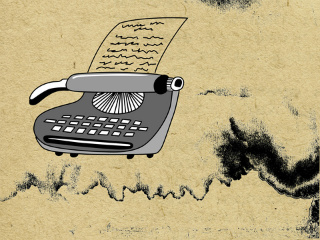My state writing group had a Zoom meeting today at lunch where we discussed writing dialogue. One of the things the host asked was “What are some things writers do with dialogue that you hate?”

Here are some of the “Don’ts” we came up with for writing dialogue:
- Don’t name-call: In real life, people don’t go around calling each other by name every sentence or two. “Hello, Donna,” is fine, but having two people constantly call one another by name is something you’ll never hear in real life.
- Don’t repeat: If you find your characters keep saying the same thing or similar things over and over throughout your work, find a way to cut most or all of them out. Either say what needs to be said once, or figure out something else for that character to talk about.
- Don’t ramble: If your dialogue goes on more than a paragraph or two, it’s time to cut that character off. You don’t want a lecture.
- Don’t use adverbs: You’ve all cringed at these. “She said enthusiastically,” “He exclaimed excitedly,” “They chorused angrily.” Show emotion instead of trying to tell with adverbs.
- Don’t include everything: Real dialogue can be boring. “How are you today?” “Fine, and you?” “Good. How about those Dodgers?” Get to the meat of the conversation and leave out anything else.
- Don’t say what’s already known: “As you know, Bob …” If your character already knows how a cellphone works, they’re not going to strike up a random conversation explaining it to someone else.”
- Don’t have talking heads: Real people don’t just sit there talking. They do things. They fidget. They walk and talk. Give your characters actions. Not only will it be more interesting, but you can move the plot along more quickly that way.
- Don’t write grammatically: Real people also don’t speak in grammatically correct, perfect sentences. They use fragments. They use dialect (see the next two “Don’ts” however!). They hem and haw.
- Don’t overuse dialect: It’s fine if you have a character from the South. However, don’t go overboard trying to spell out every word they say. That gets old fast. Simply sprinkle in a few dialect choices, then the readers remember that Joe speaks in a Southern drawl.
- Don’t use the wrong dialect: If your character is Irish, make sure they’re not actually speaking in a Scot’s brogue. If you don’t actually know a person with that specific dialect, go online and advertise for some beta readers. Get expert advice before you make a mistake.
You can probably think of more “pet peeves” about dialogue, but these seem to be the main ones to avoid. What makes you cringe when you read it?
